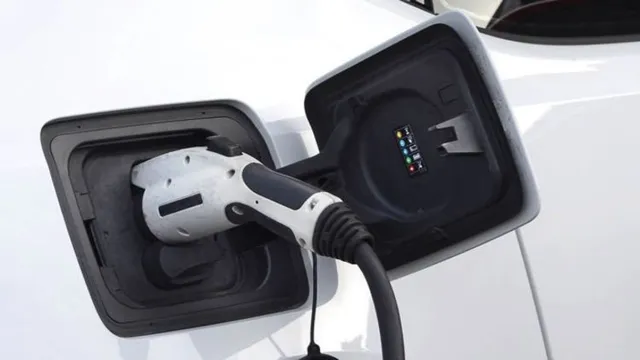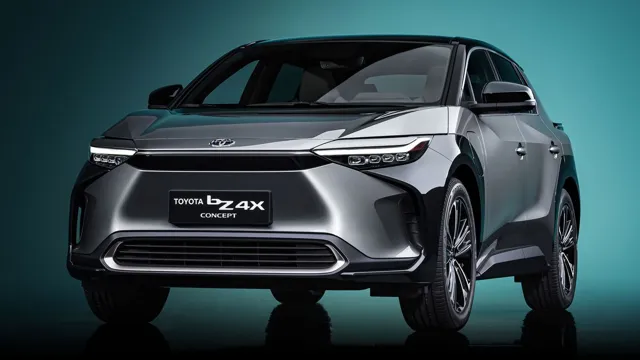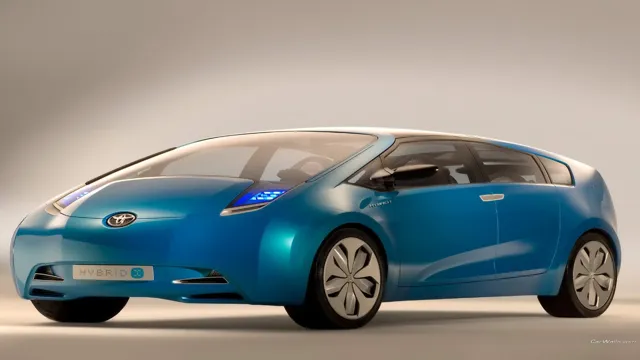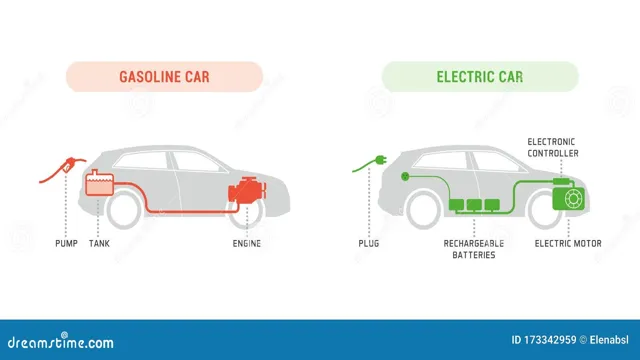Revolutionizing the Road: Exploring the Latest Breakthroughs in Electric Car Battery Technology
Electric cars have come a long way since their inception, and now more than ever, people are considering them as viable options for their daily commutes. Companies around the world are working on revolutionizing electric cars, from their design to their capabilities, to make them more attractive to consumers. But what does it mean to revolutionize electric cars? The answer lies in how companies are approaching the development of these vehicles, pushing boundaries and breaking traditional norms to make them more efficient, sustainable, and accessible.
In this blog post, we’ll explore some of the ways in which electric cars are being revolutionized, and why it matters for the future of transportation. So, buckle up and get ready to take a ride into the exciting world of electric cars, where innovation and sustainability meet.
Current Battery Technology
As electric cars become more popular, the need for efficient and long-lasting batteries has increased. Current battery technology relies mostly on lithium-ion batteries, which have become the standard in the industry. However, research and development are underway to create new battery technology for electric cars.
One promising option is solid-state batteries, which use a solid electrolyte instead of the liquid electrolyte found in lithium-ion batteries. Solid-state batteries have the potential to be safer, more energy-dense, and faster charging than lithium-ion batteries. Another technology being explored is lithium-sulfur batteries, which are lighter and cheaper than lithium-ion batteries.
These batteries have a higher energy density, which means they can hold more energy in the same size or weight than lithium-ion batteries. While these technologies are still in the research and development phase, they show promising results and could revolutionize the electric car industry. By using new battery technology, electric cars could become even more efficient and affordable for consumers.
Lithium-Ion Batteries
Lithium-ion batteries are currently the most widely used battery technology across a vast range of devices, from small electronics like smartphones and laptops to larger applications like electric vehicles. This technology has been incredibly successful due to their lightweight and high energy density, which allows for longer battery life and high power output. The positive electrode in these batteries is typically made up of lithium cobalt oxide or lithium iron phosphate, while the negative electrode is composed of graphite.
While these batteries have certainly had their share of issues, such as overheating and combustibility, modern safety measures have made them much safer to use. Overall, lithium-ion batteries offer a powerful and efficient power source that has revolutionized the way we use and rely on our electronic devices.
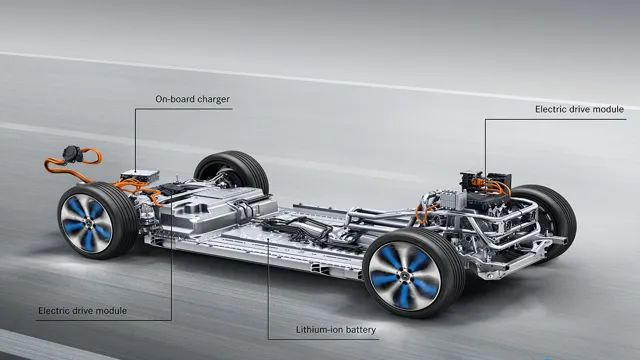
Battery range limitations
Current Battery Technology: Limitations on Battery Range Battery-powered vehicles offer an alternative to traditional gas-fueled cars, but their battery range is still limited. Current battery technology has not reached the level required for long-distance driving. The range of electric vehicles is affected by various factors, including temperature, terrain, driving behavior, and accessories used.
The most common type of battery used in electric vehicles is lithium-ion, which contains a finite amount of energy. Therefore, a car running on battery power will require a recharge after a certain distance. Lithium-ion batteries used in electric cars have a maximum range of around 300 miles per charge.
However, that range may decrease to 100 miles or less in cold weather or on steep terrains. Additionally, batteries degrade over time and will eventually need replacement. The high cost of battery replacement is another factor that limits the adoption of electric cars.
As a result, electric vehicles remain a viable option only for short-range driving or daily commutes. Researchers are working on developing better battery technologies that can increase the range and durability of electric car batteries. There are promising developments, such as solid-state batteries that offer higher energy density, longer battery life, and faster charging times.
These advancements could result in a future where electric cars can travel long distances without requiring frequent recharges. But for now, the range limitation is something that consumers need to consider before making the switch to electric vehicles.
The Future of Electric Car Batteries
As the demand for electric cars continue to rise, so does the need for new battery technology that can keep up with the increased demand. The good news is that there are several new battery technologies in development. One of these technologies is the solid-state battery, which could offer higher energy density and faster charging times than traditional lithium-ion batteries.
Another promising development is the use of graphene, which could potentially make batteries lighter and more efficient. Additionally, researchers are exploring the use of sodium-ion batteries, which are cheaper and more abundant than lithium-ion batteries. Overall, the future of electric car batteries looks bright, as new technologies continue to emerge and improve.
While it may take some time for these new battery technologies to become widely available, they offer exciting possibilities for a cleaner and more sustainable future.
Solid-State Batteries
Solid-State Batteries Electric cars have been gaining popularity around the world. They are more environmentally friendly, cost-effective, and efficient than traditional gas-powered cars. However, a major hindrance to their widespread adoption is the limited range and long charging times of their batteries.
That is where solid-state batteries come in. These batteries are more efficient, smaller, and more powerful than traditional lithium-ion batteries. They also promise to have longer lifespans, faster charging times, and safer operation.
With their solid electrolyte, instead of a liquid one, they are also less prone to leakage and overheating. Solid-state batteries could revolutionize the electric car industry by overcoming current limitations and providing a more reliable and sustainable energy option. As companies continue to invest in research and development to improve the technology, solid-state batteries are poised to be the future of electric car batteries.
Advantages of Solid-State Battery Technology
Solid-state battery technology is revolutionizing the future of electric cars. Unlike traditional lithium-ion batteries, which rely on liquid electrolytes, solid-state batteries use solid electrolytes. This makes them safer, more efficient and energy-dense, and enables faster charging times.
Moreover, solid-state batteries tend to have longer life cycles than their liquid counterparts, which means they last longer and provide more value for the end-user. One of the biggest challenges of current electric car batteries is their limited driving range, but solid-state batteries could provide a solution to this problem. With higher energy densities and faster charging, electric cars will be able to travel longer distances without needing to recharge.
This means that the future of electric cars looks bright, and solid-state battery technology will be a key driver of that success.
Examples and Current Development
The future of electric car batteries looks bright as technology continues to advance. For example, solid-state battery technology promises to provide longer driving ranges, faster charging times, and increased durability compared to traditional lithium-ion batteries. Companies like Toyota and Volkswagen are investing heavily in this technology, with plans to release vehicles with solid-state batteries within the next few years.
Additionally, researchers are exploring new materials like graphene and silicon to improve battery performance. Another area of development is the use of AI to optimize battery performance and extend their lifespan. In the near future, we can expect to see advancements that make electric cars more practical and affordable for everyday use, helping us move towards a more sustainable future.
Problems with Solid-State Battery Technology
The quest for a new battery technology for electric cars led to the development of solid-state batteries, which are rumored to be safer and have higher energy density than conventional lithium-ion batteries. However, this new technology is not without its problems. One of the main challenges is cost, as the production of solid-state batteries requires expensive materials and advanced manufacturing techniques.
This may make it difficult for automakers to adopt the technology on a large scale. Another drawback is the limited operating temperature range, which can affect the performance and lifespan of the battery under extreme environmental conditions. Despite these challenges, researchers and investors are optimistic about the potential of solid-state batteries, as they could revolutionize the electric car industry by enabling longer driving ranges and faster charging times.
Slow Charging
Solid-state battery technology has been touted as the future of electric vehicles and energy storage, with promises of higher energy density, longer battery life, and improved safety. However, there are still several challenges that need to be overcome before solid-state batteries can become mainstream. One major issue is slow charging.
Solid-state batteries have a lower conductivity compared to traditional lithium-ion batteries, which means they take a longer time to charge. This is mainly due to the solid-state electrolyte, which does not allow for the rapid movement of lithium ions. While researchers are working on improving the conductivity of solid-state batteries, this remains a major obstacle to their widespread adoption.
High Production Costs
Solid-state battery technology has the potential to revolutionize the way we power our devices, from smartphones to electric cars. However, there are still some hurdles to overcome before this technology can become widely available. One of the biggest challenges is the high production costs associated with solid-state batteries.
Unlike traditional lithium-ion batteries, which can be mass-produced using existing manufacturing processes, solid-state batteries require specialized equipment and materials. The high cost of these materials, combined with the need for additional production steps, means that solid-state batteries are currently much more expensive to produce than their traditional counterparts. This presents a significant obstacle for manufacturers looking to incorporate this technology into their products.
However, as demand for solid-state batteries grows, the hope is that economies of scale will eventually drive down production costs, making this technology more accessible to consumers.
Conclusion
In conclusion, the future of electric cars is looking brighter than ever, thanks to new battery technology that promises longer driving ranges and faster charging times. With innovations such as solid-state batteries and silicon anodes, we are on the cusp of a revolution in sustainable transportation. As we strive towards a greener, cleaner future, electric cars will play a pivotal role in the transition away from fossil fuels.
So get ready to plug in and hit the road, because the future is electric!”
FAQs
What is the new battery technology for electric cars?
The new battery technology for electric cars is the use of solid-state batteries, which offer higher energy density, longer lifespan, and faster charging times.
How are solid-state batteries different from traditional lithium-ion batteries?
Solid-state batteries are different from traditional lithium-ion batteries in that they use a solid electrolyte instead of a liquid electrolyte, which makes them safer, more stable, and more efficient.
What are the benefits of using solid-state batteries in electric cars?
The benefits of using solid-state batteries in electric cars include longer driving ranges, shorter charging times, and reduced fire risk, as well as lower costs and improved sustainability.
When will solid-state batteries be available for mass production in electric cars?
Solid-state batteries are still in the research and development stage, but some automakers have announced plans to introduce them in their electric cars within the next few years, with commercialization expected by the mid-2020s.
